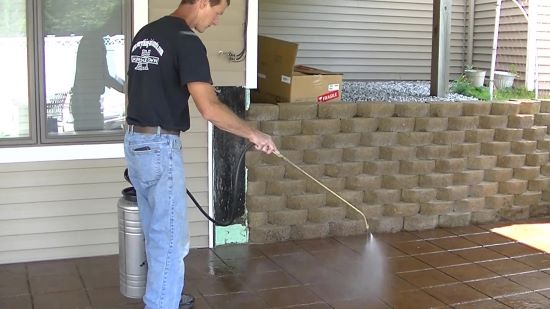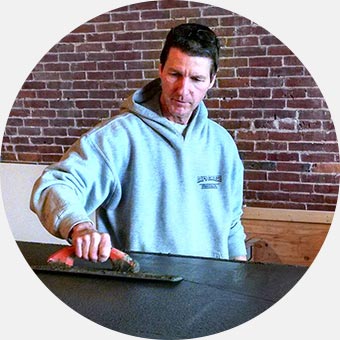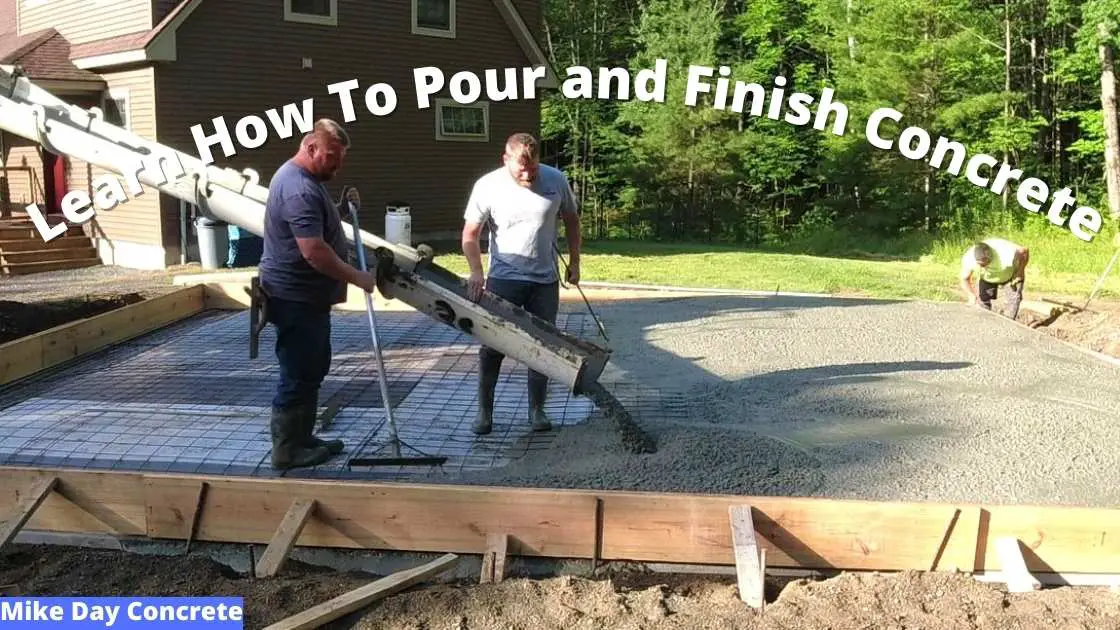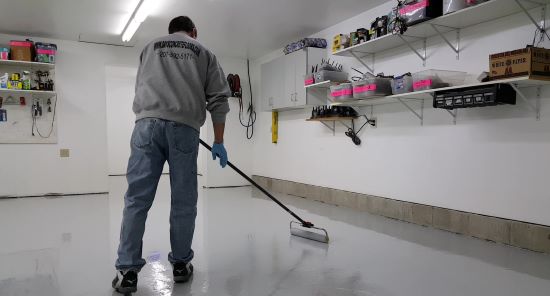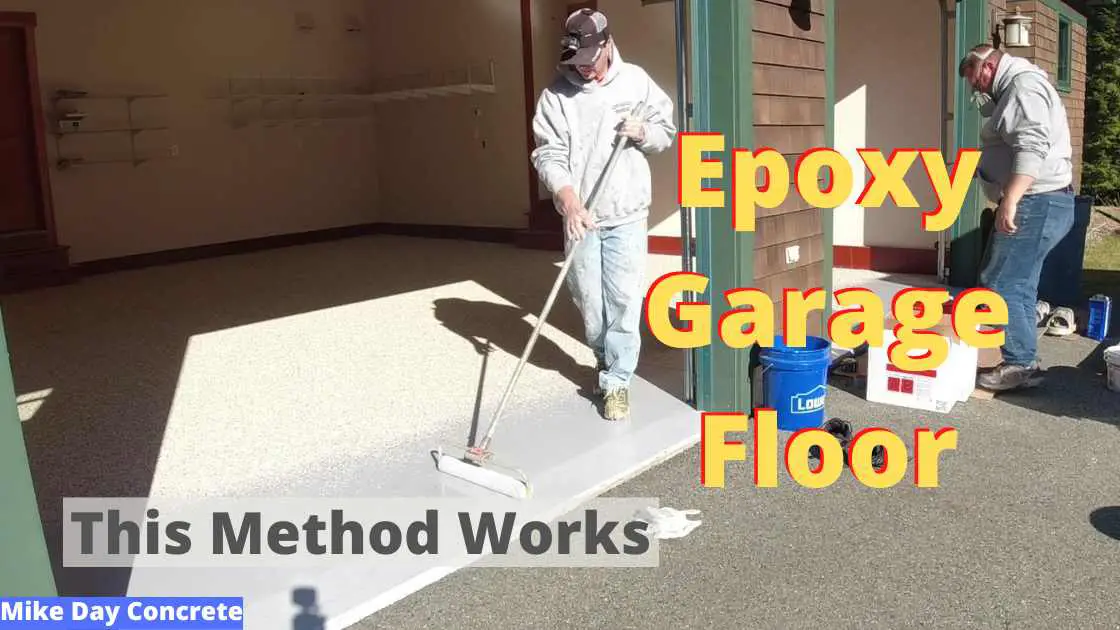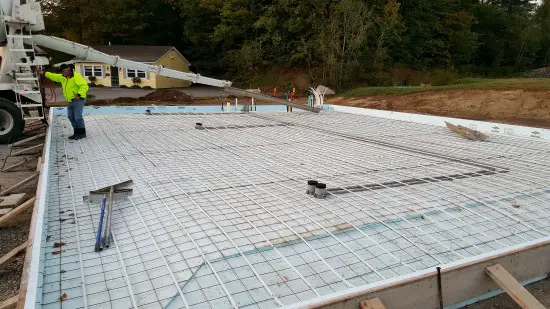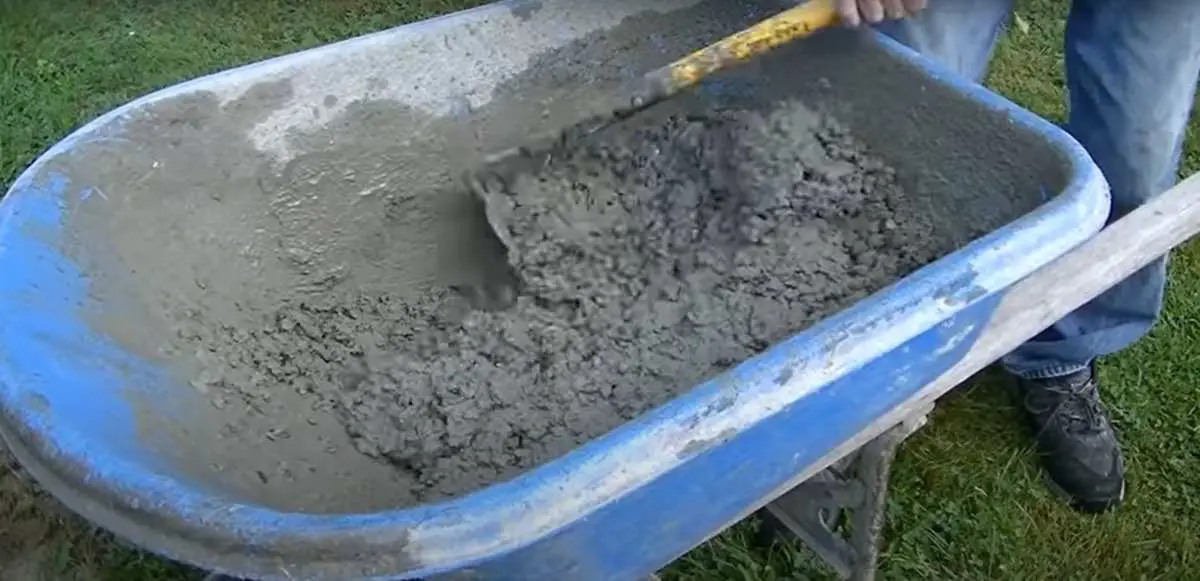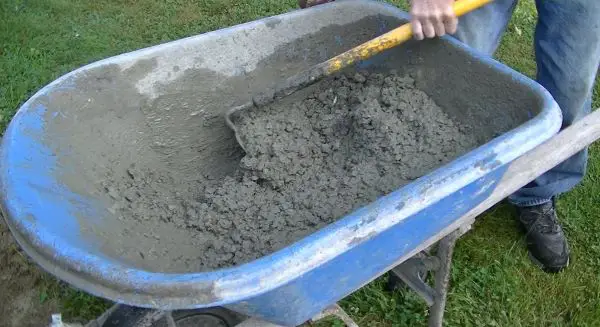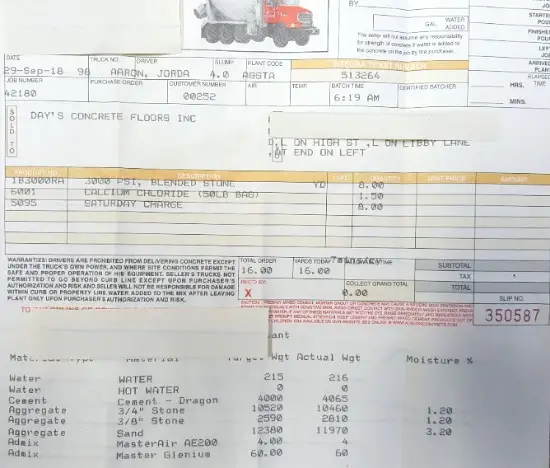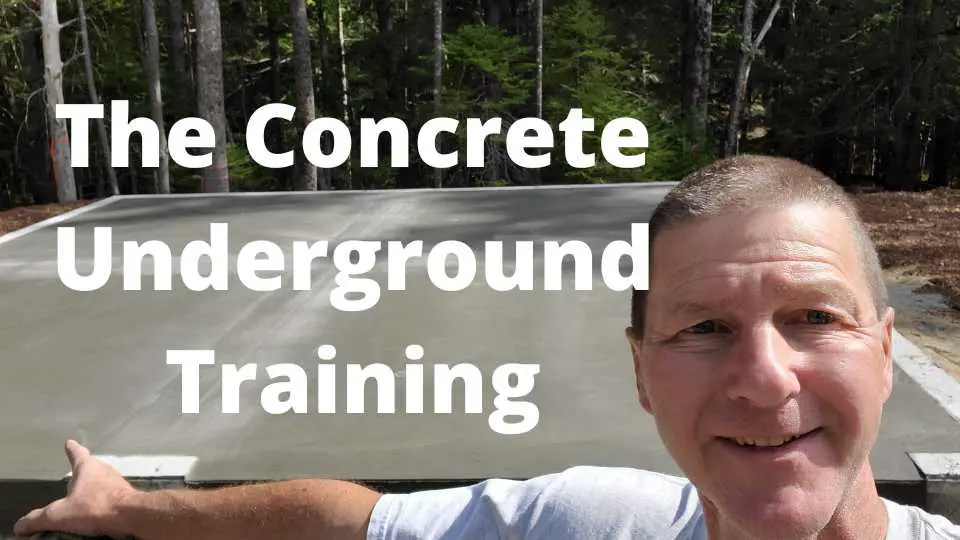STAMPED CONCRETE SEALERS
What Are The Best Sealers To Use For Stamped Concrete
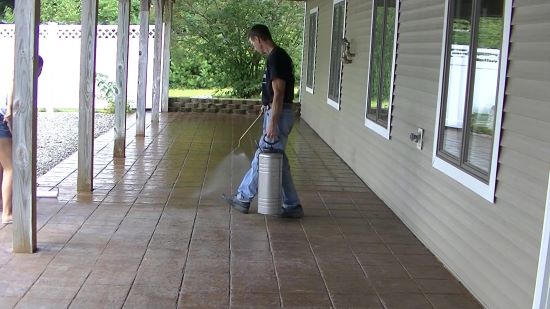 That's me sealing a stamped concrete patio
That's me sealing a stamped concrete patioThis is What I Use And How I Seal My Stamped Concrete Jobs:
What Sealer Do I Use To Seal My Stamped Concrete?
There are two basic types of sealers for stamped concrete, one is a penetrating sealer the other is a film forming sealer.
- Foundation Armor WL550 - Penetrating Wet Look Sealer That Forms A Water Repellent Barrier Inside The Concrete.
- Foundation Armor AR350 - Topical Wet Look Sealer That Protects and Enhances The Color of the Concrete and Leaves A Matte Look.
- Foundation Armor AR500 - Topical High Gloss Sealer That Protects and Enhances The Concrete While Leaving A Shiny look.
There are many different brands of stamped concrete sealers to choose from. Finding the one that will work best for your stamped concrete is what I'll help you figure out.
Sealing your stamped concrete is a very important step to maintaining its durability and beautiful appearance.
If your concrete is sealed correctly, it will help protect it from damaging water, chemicals, stains, oil, and freeze/thaw cycles in colder climates.
The Two Best Types Are Penetrating And Film Forming (Topical) Sealers
What is a penetrating sealer?
A penetrating sealer actually penetrates the surface of the concrete and reacts chemically with the concrete to protect against moisture and deicing salts.
It fills the micro and macro spaces, solidifying the entire substrate into one solid mass.
This type of sealer prevents rain and moisture absorption, allowing water to bead up on the surface. The sealed surface is very easy to clean and stays cleaner longer.
This has the lowest maintenance and reapplication costs of other sealers.
Penetrating sealers are UV resistant and most allow moisture vapor to escape the concrete.
Use a penetrating stamped concrete sealer for outside and inside stamped concrete where a matte finish is desired.
If you don't want a wet, shiny look, this is the sealer to choose.
My Recommendation For A Penetrating Sealer is:
This is a professional grade penetrating sealer that's designed to protect and enhance your stamped concrete with a matte wet look finish.
This concrete sealer is a solvent based silicone water repellent sealer that soaks into the concrete and works entirely below the surface to protect your stamped concrete.
It chemically reacts inside the concrete to form a water repellent barrier that will reduce wear and tear, staining, and deterioration caused by the absorption of water in freeze and thaw conditions.
What are film forming sealers?
Film forming sealers do just what their name implies, they form a protective film over the surface of the concrete.
These topical sealers are the most popular choice for decorative stamped concrete because they enhance the colors in the concrete and leave a high gloss or wet look to the concrete.
See the different kinds below:
Wet Look Stamped Concrete Sealers
This type of topical sealer is made to make your stamped concrete look wet.
It enhances the colors in new concrete and will renew the colors in older stamped concrete.
It penetrates the surface to create a bond to the concrete but also leaves behind a topical film to protect the concrete from surface wear and water absorption.
My Recommendation For The Best Wet Look, Low Gloss Sealer is:
This acrylic stamped concrete sealer will darken the surface to make it look wet and really enhance the colors.
At the same time it protects the concrete with a visible, low gloss surface film.
It is used for brand new stamped concrete as well as older stamped concrete previously sealed with a solvent based acrylic sealer.
This sealer can also be used on unsealed garage floors and pavers.
You can apply this with either a pump up sprayer or paint roller
My recommended sprayer:
Chapin Stainless Steel Pump Up Sprayer
High Gloss Stamped Concrete Sealers
High gloss (and wet look) acrylic topical sealers penetrate the surface to bond, but also leave a durable high gloss finish that'll last for 1 - 5 years depending on the use it gets.
This kind of sealer can be used for interior or exterior stamped concrete surfaces.
The high gloss of this sealer greatly enhances the colors in the concrete, leaving you with a visible sheen to the surface.
At the same time, it protects the concrete from deterioration caused by water, mold, mildew, efflorescence, and freeze & thaw conditions.
My Recommendation For The Best High Gloss Sealer is:
This acrylic high gloss sealer will give your stamped concrete a very shiny look.
This is a low maintenance sealer that is easy to re-coat. (See my video)
You can also use this sealer for garage floors, concrete floors, pavers and concrete previously sealed with solvent based acrylic sealers.
You can apply this sealer by pump up sprayer or roll it on.
Use the Chapin Stainless Steel Sprayer to apply it with.
Will Sealing The Concrete Make It Slippery?
A penetrating sealer doesn't leave any kind of film on the surface, so it won't make your concrete any more slippery than before you sealed it other than the water beading up on the surface.
A topical (film forming) sealer leaves a very thin film of sealer on the surface and could make it slightly slipperier when it gets wet.
If this is a concern, just add a non-slip additive to the sealer when you apply it to help make the surface less slippery.
These are the 3 basic types of topical
stamped concrete sealers
Acrylic film forming sealers are the easiest to apply. They can be used on interior or exterior stamped concrete.
Acrylic sealers provide good protection against water and chemical damage. They are UV resistant, non yellowing, fast drying, and come in high or low gloss levels.
Acrylics offer a softer surface and are usually the least expansive.
Urethane film forming sealers go on about twice as thick as the acrylic sealer and provides excellent protection against chemicals and abrasives.
These are very good for high traffic areas, really enhance the beauty of decorative concrete, and can be used on both interior and exterior stamped concrete.
Epoxies will give you the hardest, longest lasting, chemical and abrasive resistant finish of all the stamped concrete sealers.
They bond very well to concrete and are generally used for interior applications. They are less UV resistant and may yellow if exposed to the sun.
Epoxies are great sealers for high traffic areas and very easy to maintain. Before installing any sealers to stamped concrete make sure the surface is completely dry and clean from dirt, dust, oil, and grease.
Urethane and Epoxy sealers usually require some kind of training to apply them properly.
Applying these sealers correctly will make clean up easier and offer very good resistance to harsh weather conditions, mold, and bacteria growth.
Cleaning your concrete should be done on a regular basis. The frequency will depend on how high a traffic area to cars or foot traffic the stamped concrete is exposed to.
When it comes time to re-seal the concrete, if you used an acrylic solvent sealer, this is done quite easily.
See how I do it HERE.
There are many good brand name stamped concrete sealers on the market. Knowing these basics will help you choose the right one for your application.
You can take my recommendations above or choose one on you own. I use the sealers I recommend on my stamped concrete jobs for all my customers.
I've tried many different brands over the years and the one's above I've had the best results with.
For more information and to learn how to correct sealer problems click on CONCRETE SEALER.
For more information on other stamped concrete topics, read below:
Return from Stamped Concrete Sealers to Stamped Concrete
Return from Stamped Concrete Sealers to Everything About Concrete Home Page
